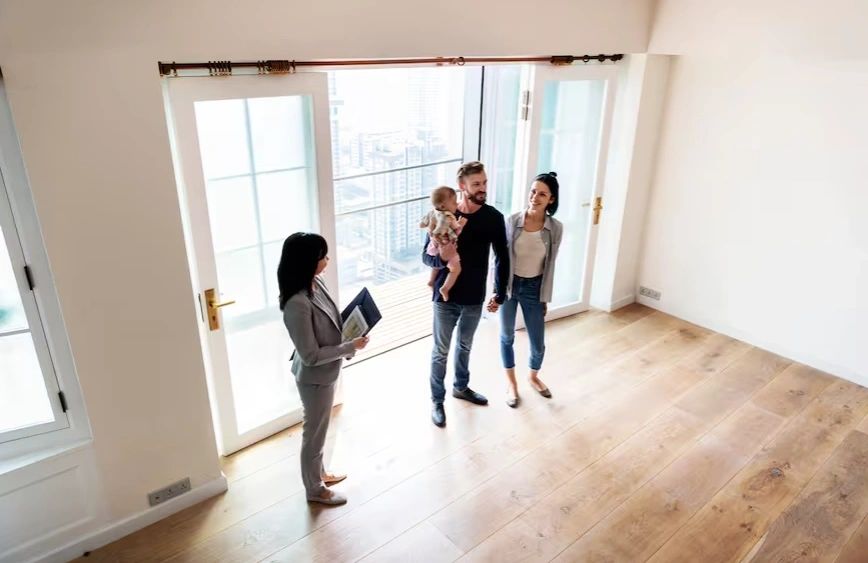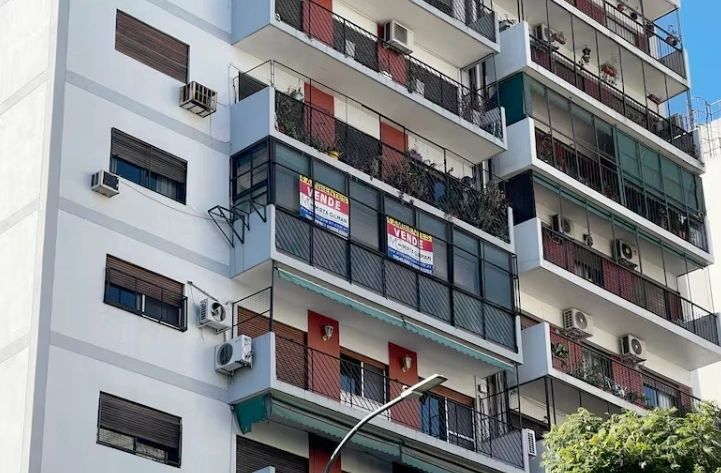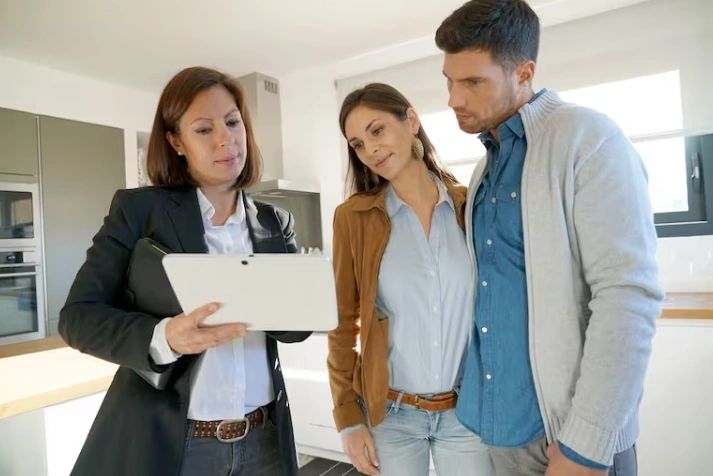BuySellBA
Administrator
How many times and when should I visit a property before buying it? - La Nacion Propiedades

Source:

 www.lanacion.com.ar
www.lanacion.com.ar
September 09, 2025
When considering purchasing a property, it's important to know that one visit is never enough; what do specialists recommend?
By Candela Contreras

Buying a property is one of the most important investments in a person's life. Shutterstock
When considering buying a property , many factors come into play. It's not just another formality: for most people, it's the most important investment of their lives . It's a decision that will impact the entire process leading up to the decision, and it can even be a process that lasts for years if the decision is accompanied by mortgage financing .
The pressure to make the right decision is present at every moment, so below are a series of questions answered by various specialists . One of the most common questions buyers ask is: How many times should you visit a property before buying it, and when should you do so?
The answer is neither linear nor closed, but experts agree that a single visit is never enough . A second visit often reveals what the first missed, and a third can be useful to validate decisions or incorporate the input of an architect or technician.
Balayan emphasizes a key detail: “Purchasing a property is the largest investment a person makes, so it's only natural to carefully analyze all the variables before buying. On the second visit, things become apparent that aren't visible on the first: from moisture stains to whether the refrigerator, washing machine, or existing bed will fit.”
When considering how many times is enough to fully tour the property , the number varies depending on the type of transaction . "Two or three times is ideal. The third is usually more in-depth and is done with an architect, especially if the property requires renovations," says Charlie D'Aria, director of D'Aria Properties.
Daniel Obetko, Interwin's premium residential manager, adds that in many cases, the first visits are staggered : first, one person from the couple or family visits, then the entire group. "The home is a family's place in the world. Rather than counting visits, the important thing is to check if the property is suitable for the lifestyle and future of those who will live there," he explains.
For their part, Ramiro Álvarez, Regional Manager, and Alan Flexer, Manager of the San Isidro branch in Narvaez, add a key piece of information: “It is advisable to visit the property under different weather conditions, for example on a rainy day , which can help detect leaks, drips, or sunlight problems that are not noticeable on a first visit.”

Specialists agree that the property should be visited at least twice. Daniel Basualdo
The orientation and lighting of an apartment can determine the daily experience of its inhabitants. "There are apartments that never get sunlight, and that can be a problem if you're looking for natural light," adds D'Aria.
Obetko agrees that it's a good idea to check the property at various times if you have concerns about the lighting or the surroundings. She even recommends taking a walk around the neighborhood at night , even if you don't go inside the property, to get a feel for the area's security and traffic.
Narvaez offers an additional tip: record the visit with your cell phone . "That way, you can tour the property in detail later, detect aspects that went unnoticed at the time, or even share the video with family and advisors before making the decision," they explain.
D'Aria adds another recommendation: "The buyer should ask what the fixed costs are and also the seller's expectations, because these influence the negotiation and closing of the deal."
Experts also agree that the analysis doesn't begin at the property's doorstep, but rather long before, when the buyer asks themselves what they want and what they can afford . Here are five basic questions to ask before you begin touring:

Before starting the search, the buyer should ask themselves a series of key questions. shutterstock
A visit with an architect or technician can make the difference between a good purchase and an expensive decision. "If the property requires work, it's essential to have a professional assess what improvements are possible and what the cost will be," suggests Obetko.
D'Aria agrees: " The third visit with an architect allows for the project to be planned and the actual budget calculated. A property may be inexpensive at the outset, but become a huge expense if unexpected renovations arise later."
Balayan emphasizes the building's condition and the relationship between expenses and maintenance . Obetko advises looking to the future: "If you have teenage children, transportation will be essential for them to get around independently. It's also a good idea to evaluate the proximity to schools, hospitals, or commercial areas depending on the family's stage of life."
“ The undeniable things that matter : the neighborhood, the type of building, whether or not it has a garage, whether or not it has amenities, whether or not you want to renovate, whether it's linked to proximity to a family member, whether it's linked to proximity to work and/or school, among others,” Obetko adds, adding that this is connected to the lists you make. That original list then has to include the essentials, that is, being able to accept that it doesn't have a terrace or a patio, but does have a balcony.
“Ultimately, the buying process is not just about evaluating the condition of the property, but also how you feel about it ,” Obetko concludes. Because beyond the square footage, choosing a house or apartment is ultimately about choosing a place in the world.
www.buysellba.com
Source:

¿Cuántas veces y en qué momentos debería visitar una propiedad antes de comprarla?
A la hora de pensar en comprar un inmueble, es importante saber que una visita nunca alcanza; qué recomiendan los especialistas
September 09, 2025
When considering purchasing a property, it's important to know that one visit is never enough; what do specialists recommend?
By Candela Contreras

Buying a property is one of the most important investments in a person's life. Shutterstock
When considering buying a property , many factors come into play. It's not just another formality: for most people, it's the most important investment of their lives . It's a decision that will impact the entire process leading up to the decision, and it can even be a process that lasts for years if the decision is accompanied by mortgage financing .
The pressure to make the right decision is present at every moment, so below are a series of questions answered by various specialists . One of the most common questions buyers ask is: How many times should you visit a property before buying it, and when should you do so?
The answer is neither linear nor closed, but experts agree that a single visit is never enough . A second visit often reveals what the first missed, and a third can be useful to validate decisions or incorporate the input of an architect or technician.
1) Why is it important to visit more than once?
“One visit isn't enough; at least two are necessary,” says Soledad Balayan, owner of Maure Inmobiliaria. The first visit tends to have a more emotional impact : you observe the layout of the rooms, the lighting, and the access points. The second visit is more rational and technical : you review the actual dimensions, installations, and condition of the property.Balayan emphasizes a key detail: “Purchasing a property is the largest investment a person makes, so it's only natural to carefully analyze all the variables before buying. On the second visit, things become apparent that aren't visible on the first: from moisture stains to whether the refrigerator, washing machine, or existing bed will fit.”
When considering how many times is enough to fully tour the property , the number varies depending on the type of transaction . "Two or three times is ideal. The third is usually more in-depth and is done with an architect, especially if the property requires renovations," says Charlie D'Aria, director of D'Aria Properties.
Daniel Obetko, Interwin's premium residential manager, adds that in many cases, the first visits are staggered : first, one person from the couple or family visits, then the entire group. "The home is a family's place in the world. Rather than counting visits, the important thing is to check if the property is suitable for the lifestyle and future of those who will live there," he explains.
For their part, Ramiro Álvarez, Regional Manager, and Alan Flexer, Manager of the San Isidro branch in Narvaez, add a key piece of information: “It is advisable to visit the property under different weather conditions, for example on a rainy day , which can help detect leaks, drips, or sunlight problems that are not noticeable on a first visit.”

Specialists agree that the property should be visited at least twice. Daniel Basualdo
2) What are the most strategic times to visit the property?
It's not just how many times you visit that matters, but also what time of day you visit . "Ideally, it's early in the morning and then early in the afternoon, to see how the sun affects it, what the traffic is like on the street, and how the lighting changes inside," suggests D'Aria.The orientation and lighting of an apartment can determine the daily experience of its inhabitants. "There are apartments that never get sunlight, and that can be a problem if you're looking for natural light," adds D'Aria.
Obetko agrees that it's a good idea to check the property at various times if you have concerns about the lighting or the surroundings. She even recommends taking a walk around the neighborhood at night , even if you don't go inside the property, to get a feel for the area's security and traffic.
3) What to look for on each visit?
Experts agree on a series of basic checks:- Installations : Test the faucets, heating, air conditioning, and electrical appliances. “The property may not be inhabited, and disuse is often a silent enemy,” warns D'Aria.
- Structure : Check roofs, humidity, openings, and ventilation. "Water is the biggest threat to a property. If there are leaks or moisture, it's a bad sign," he adds.
- Building and surroundings : Observe expenses, the condition of common areas, and elevators, and speak with the manager. Obetko recommends asking if there were frequent extraordinary expenses, which can help you anticipate future hidden costs.
- Actual dimensions : Beyond floor plans, it's a good idea to measure rooms and check if the existing furniture will fit. "It's different to look at an empty living room than to imagine where the loveseat will go," says Balayan.
Narvaez offers an additional tip: record the visit with your cell phone . "That way, you can tour the property in detail later, detect aspects that went unnoticed at the time, or even share the video with family and advisors before making the decision," they explain.
4) What to ask before buying?
Asking questions is just as important as touring the property. In this regard, you can ask the seller or real estate agent:- Why is the property being sold?
- How much is paid in expenses and are there frequent increases?
- What if there are annoying noises or problems between neighbors?
- How long does the seller need to move in? This can impact delivery times.
D'Aria adds another recommendation: "The buyer should ask what the fixed costs are and also the seller's expectations, because these influence the negotiation and closing of the deal."
Experts also agree that the analysis doesn't begin at the property's doorstep, but rather long before, when the buyer asks themselves what they want and what they can afford . Here are five basic questions to ask before you begin touring:
- What's my real budget? Not just how much money I have, but how much I'm willing to spend without compromising my finances.
- How long do I plan to live here? Buying for a few years isn't the same as thinking ahead to decades.
- What do I need from the neighborhood? Transportation, safety, proximity to schools, shops, green spaces.
- Is it for personal use or an investment? A garage, a balcony, or certain amenities may not be a priority for the person living there, but they will make a difference when reselling.
- Am I willing to undertake a project? If the answer is yes, an architect should be hired from the outset to assess the real costs.

Before starting the search, the buyer should ask themselves a series of key questions. shutterstock
A visit with an architect or technician can make the difference between a good purchase and an expensive decision. "If the property requires work, it's essential to have a professional assess what improvements are possible and what the cost will be," suggests Obetko.
D'Aria agrees: " The third visit with an architect allows for the project to be planned and the actual budget calculated. A property may be inexpensive at the outset, but become a huge expense if unexpected renovations arise later."
5) What to look for beyond the property?
Experts agree on the importance of street lighting, public transportation connectivity, nearby services, security, and the profile of residents.Balayan emphasizes the building's condition and the relationship between expenses and maintenance . Obetko advises looking to the future: "If you have teenage children, transportation will be essential for them to get around independently. It's also a good idea to evaluate the proximity to schools, hospitals, or commercial areas depending on the family's stage of life."
“ The undeniable things that matter : the neighborhood, the type of building, whether or not it has a garage, whether or not it has amenities, whether or not you want to renovate, whether it's linked to proximity to a family member, whether it's linked to proximity to work and/or school, among others,” Obetko adds, adding that this is connected to the lists you make. That original list then has to include the essentials, that is, being able to accept that it doesn't have a terrace or a patio, but does have a balcony.
“Ultimately, the buying process is not just about evaluating the condition of the property, but also how you feel about it ,” Obetko concludes. Because beyond the square footage, choosing a house or apartment is ultimately about choosing a place in the world.
www.buysellba.com

